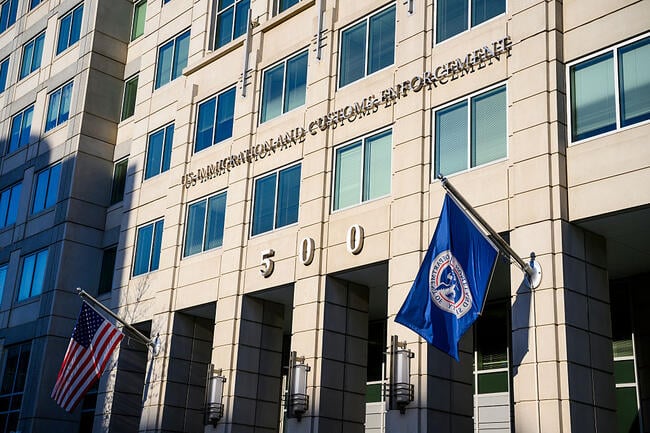You have /5 articles left.
Sign up for a free account or log in.

ICE warned international students on short-term work visas they may be deported if they don’t report employment in 15 days.
Pete Kiehart/The Washington Post via Getty Images
Immigration officials sent letters to international students on short-term work visas Thursday night, threatening to terminate their legal status in the Student Exchange and Visitor Information System and remove them from the country. The number of affected students is still unknown, but Inside Higher Ed can confirm at least 35.
It’s the first sign that the Trump administration is resuming its campaign to deport student visa holders, weeks after restoring the statuses of thousands of students. ICE recently released an updated policy that significantly expands the agency’s authority to terminate students’ SEVIS status and pave the way for deportation proceedings.
This time, they’re targeting students on Optional Practical Training visas, or OPTs, which allow international postgraduates the opportunity to work in a field relevant to their study on a short-term extension. Students on OPT are allowed a total of 90 days of unemployment every 12 months before falling out of compliance. It’s still not known whether any of the affected students were on a special visa extension known as OPT for STEM, awarded to graduates in high-demand technology, science and engineering fields.
One international student adviser, who spoke with Inside Higher Ed on the condition of anonymity, said 28 of his institution’s students on OPT received the letter in the past day, and he expects that number will grow.
In a copy of one letter received by an international student and obtained by Inside Higher Ed, Immigration and Customs Enforcement warned those who have not reported employment status within 90 days of starting their OPT visa that they must do so in 15 days. If they don’t, the Student Exchange and Visitor Program “will set your SEVIS record to ‘terminated,’” the letter reads, which “may result in the initiation of immigration proceedings to remove you from the United States.”
The letter is nearly identical to those sent by officials during the first Trump administration in 2020. The only difference: Back then, the Student Exchange and Visitor Program was the letter’s sole signatory. This time, ICE and the Department of Homeland Security are also named.
The 2020 letters were sent two years after officials issued an update to designated school officials informing them that the administration had begun a review of OPT students’ employment status to find noncompliant visa holders. But that notice also said SEVP would not automatically terminate students’ SEVIS status for going over the 90-day unemployment limit before notifying students.
It’s not clear whether immigration officials engaged in a review process before beginning to notify students of potential SEVIS terminations this week. Spokespeople for ICE and DHS did not respond to questions in time for publication.
It was also not immediately clear if OPT students’ SEVIS terminations would result in subsequent visa revocations, which are the purview of the State Department. A spokesperson for the State Department wrote in an email that they “cannot preview future visa-related decisions, which are made on a case-by-case basis, based on the individual facts relevant to the case,” and deferred other questions sent by Inside Higher Ed to DHS.
In an internal communication sent to international student advisers and support specialists, NAFSA, an organization of international educators, urged college officials to regularly check the SEVIS database for notices of OPT students’ compliance with “accrued unemployment days” and to reach out to any students who are over the 90-day limit as soon as possible.
Immigration officials began systematically terminating thousands of students’ SEVIS statuses along with their visas in late March, an unprecedented move that threw international student support offices into chaos and left students scrambling to avoid deportation.
Last month, immigration officials restored the SEVIS statuses of more than 5,000 international students after losing dozens of court cases challenging the legality of efforts to revoke foreign students’ legal residency at a breakneck pace.
The anonymous international student adviser said students on OPT often forget to report their employment details before the 90-day deadline. Many are distracted by graduations and finals well after they receive approval for the visa and forget, he said; in other cases, the lapse can be due to technical issues within SEVIS.
Because of that, they’re often given some leeway, and he said he’s never seen or heard of a student having their SEVIS status terminated for not reporting employment details on time, including the last time these letters were sent in 2020. Then again, much of the Trump administration’s treatment of student visa holders is unprecedented, and he’s worried this could be a real danger for them.
“There’s a lot of panic and uncertainty as our students are waiting to see what will happen, and we’re waiting to see if they’ll really go through with it,” he said. “I think this is the real deal.”





